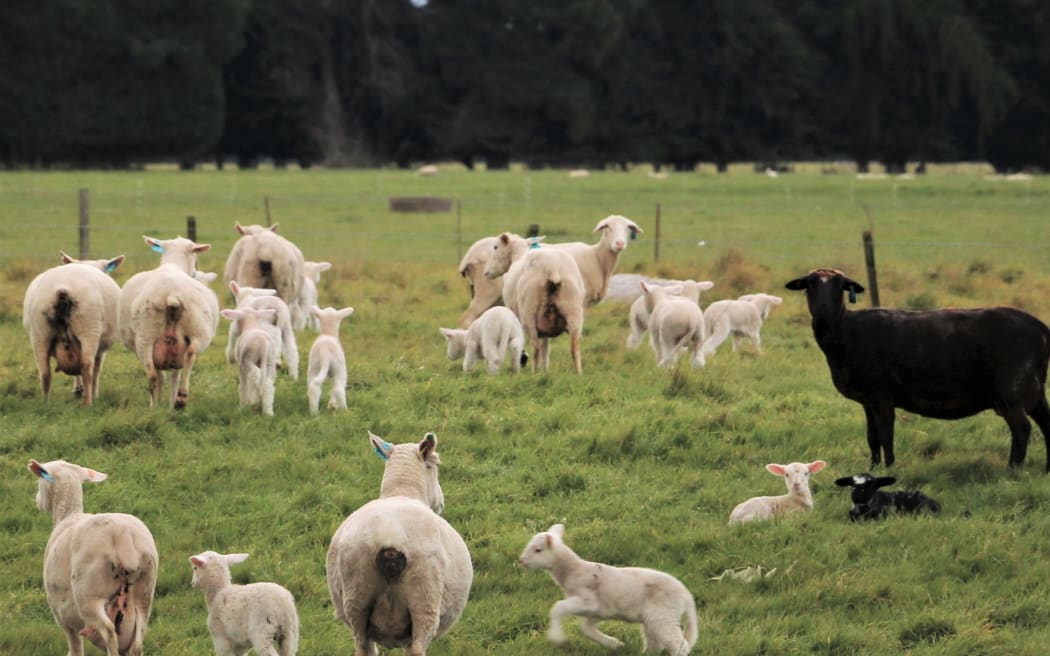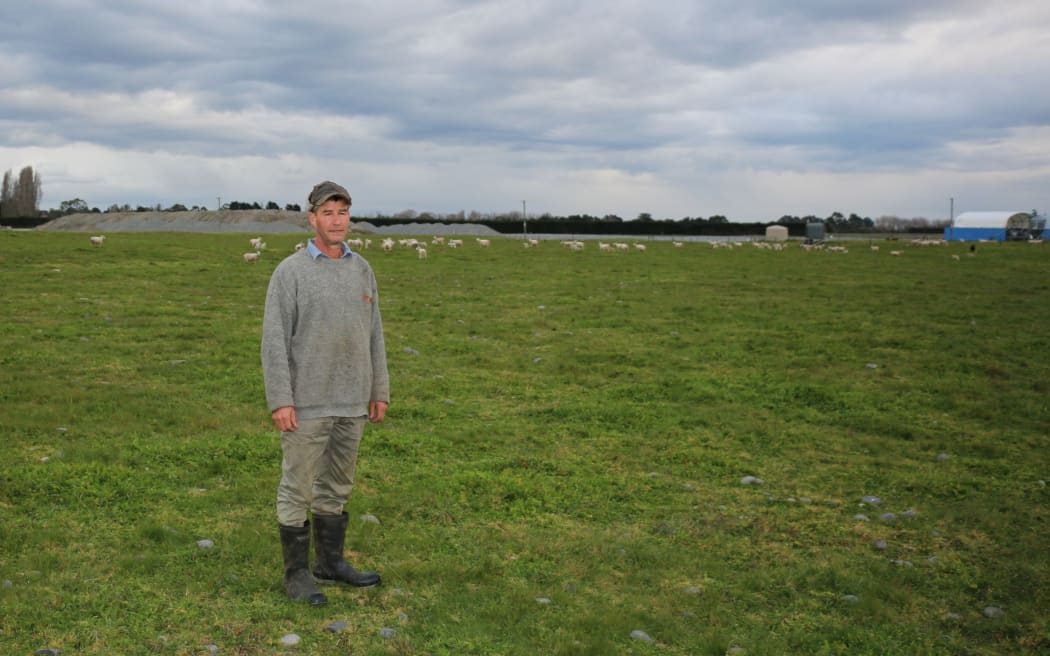
Photo: Cosmo Kentish-Barnes
The paddocks on James Thomson's city limits sheep farm are starting to look like the arrivals lounge at Christchurch Airport during the school holidays.
Newborn lambs baa nervously while those a few days old play happily as aeroplanes fly overhead.
Thomson is lambing about 5500 ewes this year on land he leases from the Isaac Conservation and Wildlife Trust.
He said lambing had started a week earlier than normal this year.
So far, the weather had been kind to his animals, but that did not necessarily mean increased lambing percentages.
"We're pretty consistent ... It doesn't actually vary too much now, even in a drier year we'll feed grain and silage so we're always late 140s. If we crack 150 survival to sale, we're really rapt," he said.
"We'll aim to fatten all of them so that's the hard work."

James Thomson on a lambing beat Photo: Cosmo Kentish-Barnes
With 'incredible' grass growth across the farm, Thomson does not have to worry about tucker for the newborns.
However prime farmgate lamb prices had fallen about 50 cents a kilo recently, which was causing concern.
"We've been cushioned by the two years of good grass growth but going forward it's a worry," he said.
"Our income is likely to drop. We really just have to knuckle down and do the best we can to cut what other costs we can.
"It's really outside of our control, so we just have to ride out the highs and lows."
Thomson breeds Isle de France sheep based on their quick growth rate.

Photo: Cosmo Kentish-Barnes
Lambs born this season will begin to be sold to market in November and continue through until mid-winter next year.
"The key thing is that they have high growth rates," he said.
"We do have a small stud, but we don't push it ... they are now among the top performing terminal breeds in New Zealand."
Thomson said the breed also make for easy lambing, though he made sure to check once a day for any cast - sheep that were heavily in lamb and had got stuck on their sides or backs and were unable to get back up.
Thomson said he would enter the paddock and help roll those animals over again - but that was as hard as it got, in terms of lambing.
"If they've been there for a wee while sometimes they lose their balance and you've got to spend quarter of an hour while they get back on their feet."

